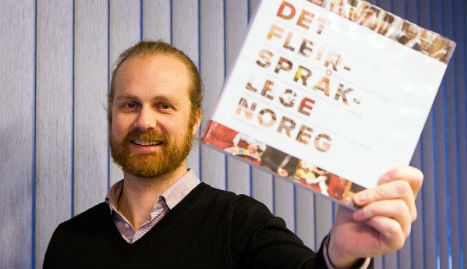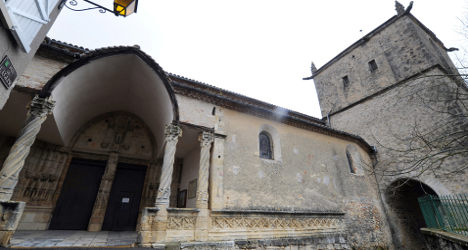TEXAS
Norway has used ‘texas’ for ‘crazy’ for 60 years
Norwegians have been using the phrase 'totally texas' to mean 'absolutely crazy' for at least 60 years, the Norwegian Language Council has discovered.
Published: 23 October 2015 08:30 CEST

Daniel Gusfre Ims at the Norwegian Language Council argues 'texas' describes a more chaotic situation than 'hawaii'. Photo: Norwegian Language Council
After the US magazine Texas Monthly picked up on the unflattering Norwegian use of their state’s name on Tuesday, the story has exploded across the internet, with versions in the Huffington Post, on National Public Radio, and on Fox News, among other outlets.
But according to Daniel Gusfre Ims, the head of the advisory service at the Norwegian Language Council, the phrase is nothing new.
“We have used the word ‘texas’ in Norway to describe wild conditions for a long time,” Gusfre Ims told The Local. “'Helt texas' has been used 50 times in newspapers this year and 53 times last year, so it’s a common expression. It has something to do with a perception of the Wild West, with the chaos and lawless society during the westward expansion of the United States in the 1800s.”
Texas Monthly trawled through Norwegian news websites to find the phrase used in stories going back to 2012.
They found examples where it has been used by police to describe reckless foreign drivers on Norway’s roads, by a fisherman to describe catching a gigantic swordfish, and by a football manager to describe the atmosphere at a match.
But Gusfre Ims says that according to the Norsk Ordbok, the authoritative multi-volume dictionary and thesaurus on the Nynorsk variation of Norwegian, usage goes back to at least 1957.
The Ordbok cites a sentence from ‘The Boy who wanted to buy Norwegian Broadcasting Corporation’, a novel by Vegard Vigerust, in which the author writes, “Did he want to make it even more texas in the village?”.
“I’m not certain that it is the oldest usage of the word, but we couldn’t find earlier an usage either,” Ims said. “When it’s used in a novel from 1957, it means it was established already.”
“I thought it was newer, but still Western novels, and Western films have been part of the popular culture for decades, so it’s not a big surprise,” he added.
Gusfre Ims explained that the use of the original place name, Texas, to describe ‘wild conditions’, ‘commotion’ and ‘noise’, was an example of the linguistic phenomenon of metonymy.
“It’s a kind of figure of speech where a thing or concept is called not by its own name but by the name of something that it is associated with — so Texas has then been associated with “chaos” or “a lawless society”.
“Metonymy is very common in Norwegian and very common in English as well actually,” he added, pointing to terms such as “Armageddon”, or “Champagne”.
He said Norwegians also used the term “hawaii” to describe something uncontrolled, particularly in the phrase “hawaii football”
“It’s kind of the same, 'hawaii' is something that goes back and forth without complete control, but it's not like 'texas', which is wilder in this figural usage.”
Url copied to clipboard!


 Please whitelist us to continue reading.
Please whitelist us to continue reading.
Member comments